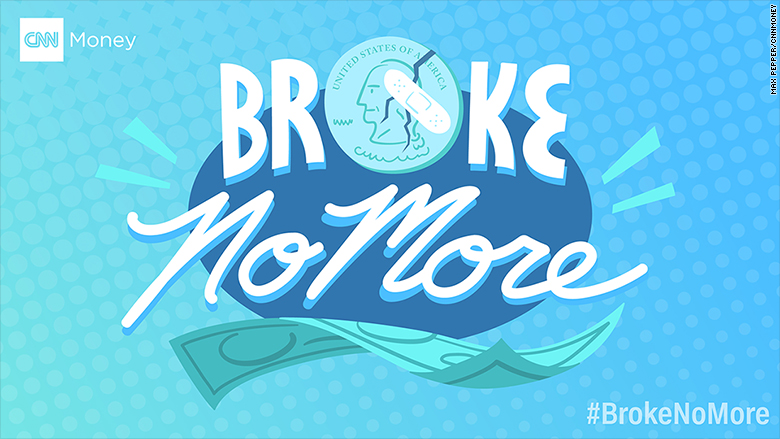
How can I save for retirement, my kids' education, an emergency fund and home improvements while still paying off student loans and a mortgage? It's a daunting balancing act! -Brian
Daunting is right.
Many of us have struggled to juggle our financial commitments and goals at some point.
While there's no one-size-fits-all solution, there are some steps you can take to gain control of your money situation.
Step 1: Count your cash
Start by calculating your monthly cash flow.
This way, you'll know exactly how much bandwidth you have -- or don't have -- to tackle your goals.
You can do this by "evaluating all [your] monthly expenses right down to the cost of postage stamps," says Brett Anderson, a certified financial planner at St Croix Advisors.

If you're spending more than you're making each month, try to cut back or boost your income.
If you do have money left over after expenses, decide how much of that cash you're willing to put toward your goals, says Marguerita Cheng, a CFP at Blue Ocean Global Wealth.
Step 2: Prioritize
Next, decide which of your financial wants requires the most urgent attention.
"The key is prioritizing two or three things. When those are done, you can scratch them off the list and add your next priorities," says Kristin Sullivan, a CFP at Sullivan Financial Planning.
Most experts agree that saving for retirement should be a top priority -- even higher on your list than saving for your child's college education.
Related: How much income will you actually need to retire?
"College can be funded a variety of ways, but there are no loans for retirement," explains Sullivan. It's especially important to start saving for retirement early, as time is a key force behind retirement fund growth.
If your company matches a percentage of your retirement contributions, make sure your taking advantage of the full match. If your job doesn't offer a 401(k) or other similar retirement plan, consider opening an IRA account.
Step 3: Take a step back
Defining the rest of your plan can be trickier.
"Everyone may have a similar starting point, but their destinations can be vastly different," explains Eric Dostal, a CFP at Sontag Advisory.
Some experts say your next move after addressing retirement should be to build an emergency savings account composed of three to six months' worth of expenses. Others advise paying off any high-interest loans, while others still say to focus on saving for your family.
Related: My budgeting app is judging me
When crafting your path, look at the time needed to accomplish each of your goals, says Richard Bergen a CFP at RLB Wealth Planning.
For example, if you know your student loans will be forgiven in 25 years, but you've signed onto a 15-year mortgage, you may want to pay down your mortgage first.
You should also determine what you and your family need.
Related: 5 financial rules to live by
"A stable job and adequate insurance could mean that an emergency fund is less of a priority," says Mitchell Kraus, a CFP at Capital Intelligence Associates. On the other hand, if you're the sole bread winner and your job isn't stable, an emergency fund is more essential.
Just remember that If you choose to put off paying down your loans, be sure to at least continue making the minimum payments. If you don't, you'll end up even deeper in debt.
